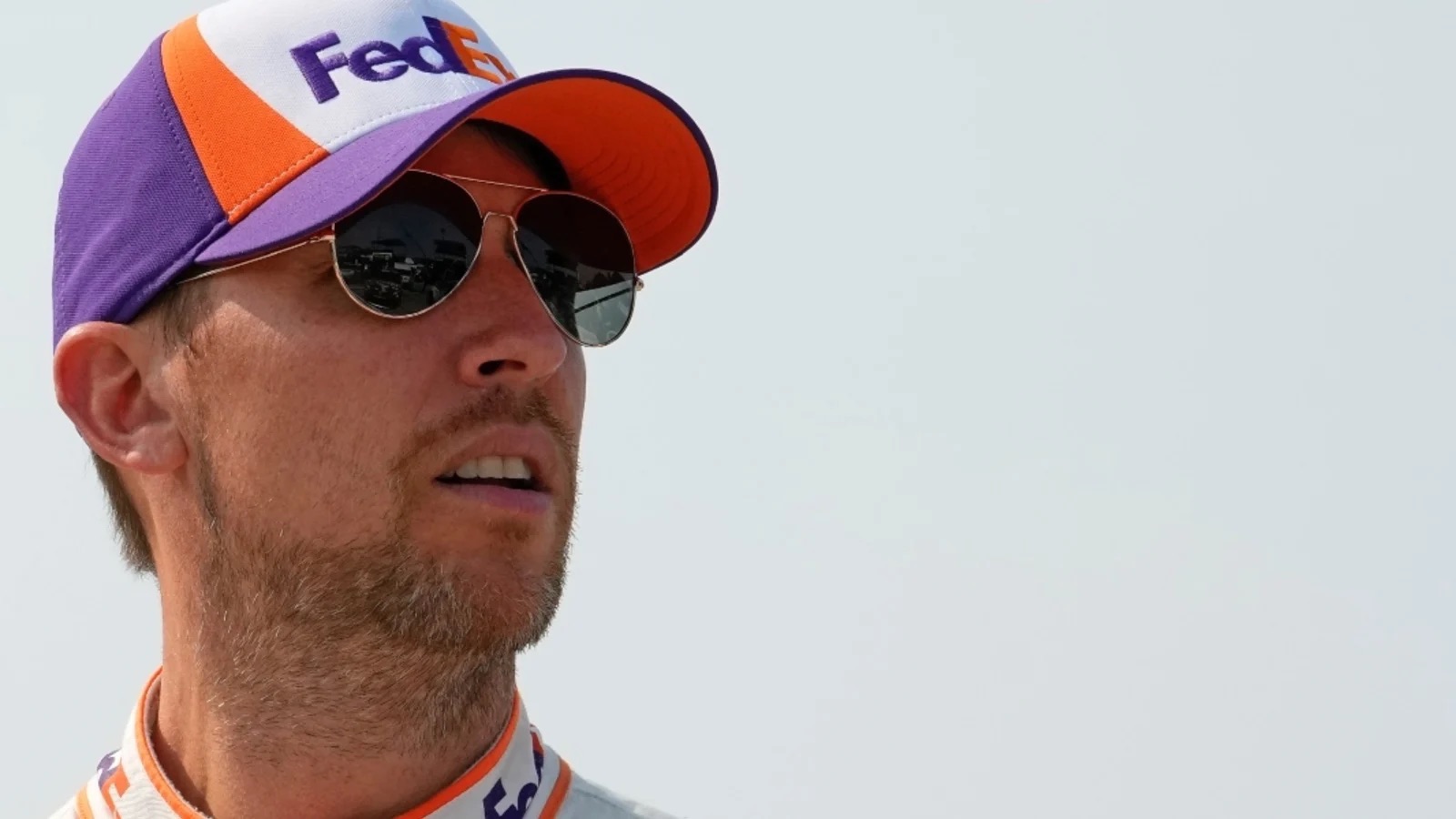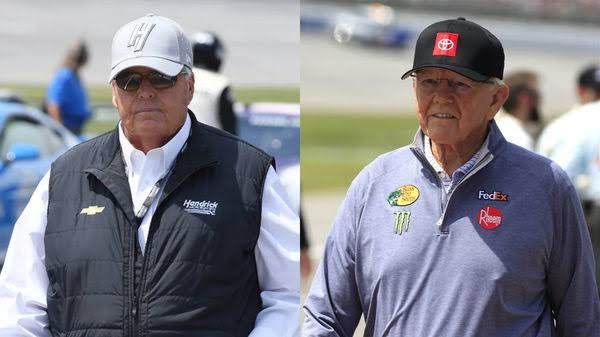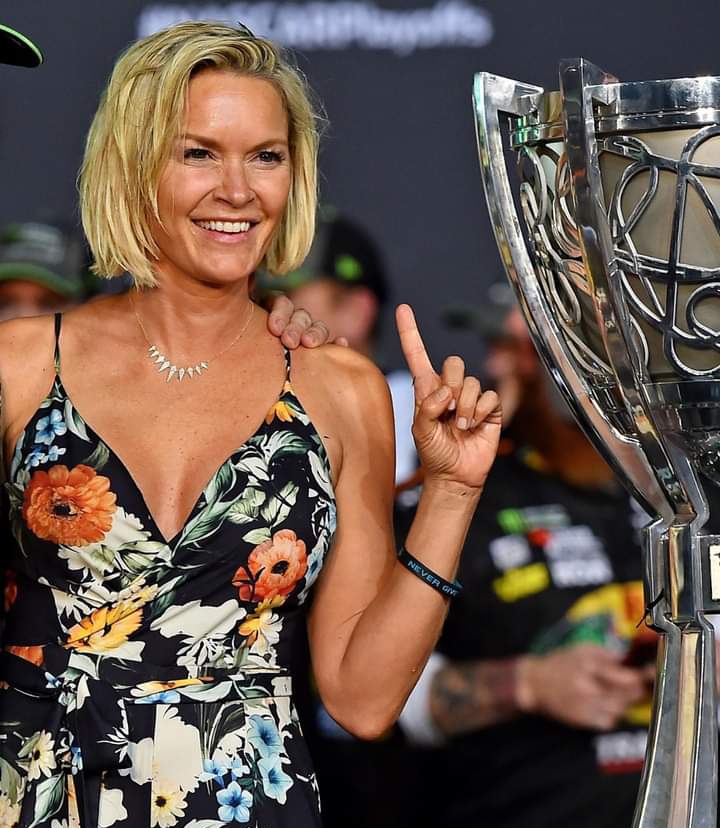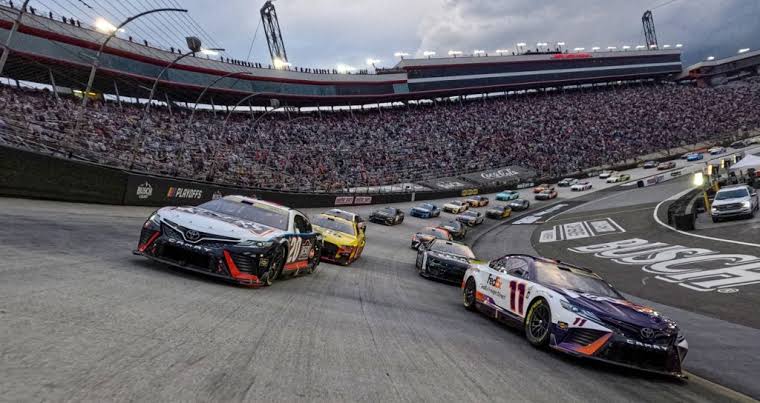As Denny Hamlin chases his first NASCAR Cup Series championship, he’s also deeply involved in a more complex and gripping situation as co-owner of 23XI Racing. This situation revolves around ongoing charter negotiations, which have quickly become a central focus in NASCAR. While several major teams have already signed the new charter agreements, 23XI Racing and Front Row Motorsports remain in a state of uncertainty. Hamlin and Michael Jordan, the owners of 23XI Racing, have been vocal about their dissatisfaction with the proposed terms, suggesting that this is just the beginning of a potentially prolonged conflict.
In a recent episode of his Actions Detrimental podcast, recorded after the Atlanta race, Hamlin provided some insight into why 23XI Racing has decided to stand firm against NASCAR in these negotiations. He expressed that the situation is far from resolved. “I’m not going to comment much beyond what I’ve said publicly,” Hamlin remarked. “This is a serious issue, and I think 23XI’s official statement sums it up well. Curtis Polk answered some media questions, and I’ll echo what he said. It’s unfortunate, but we felt pressured by an unreasonable timeline and decided to speak up because it just wasn’t right.”
The ongoing negotiations between NASCAR and 23XI Racing have sparked speculation about the team’s future and raised questions about their stance. Jeff Gluck and Jordan Bianchi of The Athletic questioned whether 23XI Racing has the leverage to challenge NASCAR’s position. Bianchi discussed the ambiguity surrounding the situation, pointing out that if the current charter agreement expires at the end of 2024, NASCAR might be able to let it lapse without repercussions. He noted the historical precedent of NASCAR making decisions unilaterally, a tradition established by the France family, who have always maintained firm control over the sport.
On the other hand, Michael Jordan and Curtis Polk, key figures at 23XI Racing, are used to winning battles in their respective fields. This clash between two powerful forces promises to be a compelling saga in the weeks ahead, especially as NASCAR’s playoffs loom on the horizon.
Speaking of the playoffs, NASCAR’s playoff system, which debuted as “The Chase for the Cup” in 2004, remains a polarizing topic. The playoff format, while designed to make championships more exciting, is often seen as a flawed attempt to fix a more deep-rooted problem in the sport. Prior to 2004, NASCAR used a straightforward points system that treated every race equally but failed to prioritize winning. This led to champions being crowned not for dominance, but for consistent, low-risk performances, rewarding those who simply avoided bad luck rather than actively winning races.
The introduction of the playoff system was intended to ensure that championships were decided by more aggressive, race-winning performances. The current playoff format, with its elimination rounds and a final winner-takes-all race, has certainly emphasized the importance of victories. In fact, since the system’s introduction, playoff-era champions have generally won more races than those under the previous points system. Stage points, introduced in 2017, further incentivized consistent race performance.
However, the system is not without its critics. The playoffs have sometimes created outcomes that feel artificially manufactured, and certain seasons have crowned champions who weren’t the most dominant drivers. For instance, in 2018, Joey Logano won the championship, despite not being one of the “Big 3” that season, due to the playoff structure leveling the field for the final race. In other instances, chaos during crucial moments, like in the 2016 finale, allowed less dominant drivers like Jimmie Johnson to secure titles due to race incidents involving other contenders.
Many argue that the playoffs create too much randomness, distorting the championship fight. One proposed solution is to overhaul the points system entirely. NASCAR’s 2011 points revision further devalued performance by making each position worth just one additional point over the next, except for race wins, which offer a small bonus. This system penalizes bad finishes far more than it rewards excellent ones, a problem that the playoffs only attempt to cover up rather than address.
IndyCar and Formula 1, by contrast, use points systems that reward consistent high performance and race wins without the artificial drama of playoffs. They allow championship battles to unfold naturally over the course of a season, avoiding the unpredictability and chaos NASCAR’s current system encourages. While NASCAR’s playoffs provide drama, they fail to address the underlying issue of the points structure, and in some cases, exacerbate the randomness of outcomes.
Until NASCAR rethinks its approach, the playoffs will remain a stopgap solution—like a Band-Aid barely holding together the deeper structural issues caused by a fundamentally flawed points system. While the playoffs may not be NASCAR’s biggest problem, they are a flawed solution to a problem the sport has yet to fully acknowledge or address.




